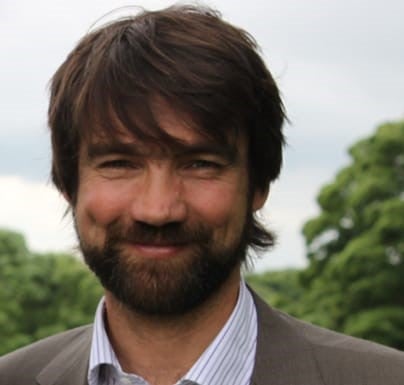
In June 2023, a closure announcement from the National Cancer Research Institute (NCRI) shook the UK cancer community. The charity has decided to cease operations due to ‘operational failure’ worries as a result of lack of funding. The NCRI did not directly fund any trials; instead it formalised connections between organisations for research to ensure unmet needs were identified. Specialists have said that the NCRI provided stability to those involved in clinical trials and the closure will greatly impact the industry not just in the UK but globally. The Clinical Trials Arena contacted the NCRI for contribution to this feature but received no response.
Short notice
Dr Andrew Wardley, executive chair of the Association of Cancer Physicians and oncologist who has organised and run clinical trials for more than two decades, said this announcement could not have come at a worse time for those involved in cancer services.

Discover B2B Marketing That Performs
Combine business intelligence and editorial excellence to reach engaged professionals across 36 leading media platforms.
“It’s a time when cancer services are really struggling, when we are unable to deliver standard of care treatments to a lot of patients in certain parts of the UK and when there’s a huge workforce shortage,” Wardley explains. “This has come at a devastating time for the cancer community of clinicians trying to treat cancer that this has happened as it has with little warning.”
Professor Lawrence Young, a professor of molecular oncology at the University of Warwick who runs the Warwick Cancer Research Centre, agreed that the closure has come at a difficult time.
“It’s just another blow really at a time when the reputation of the UK and research terms is diminishing despite what the government says about us as a superpower in terms of science and technology,” Young says.
Professor Hendrik Tobias Arkenau, chief medical officer and global head of drug development at Ellipses Pharma and a practising oncologist, said that this should be a learning moment to ensure something of this nature does not happen again. “If people would have been warned ahead a positive campaign could have been run to rescue this,” Arkenau says. “It’s too late now but the community has to come up with a solution that it doesn’t get worse.”

US Tariffs are shifting - will you react or anticipate?
Don’t let policy changes catch you off guard. Stay proactive with real-time data and expert analysis.
By GlobalData
The impact
One concern raised by specialists is that the closure could give other countries the impression that the UK infrastructure is not stable. “This sends an alarming signal that the UK is not able to provide proper infrastructure for research,” says Arkenau. “For pharma companies, for biotech, why should they now invest in clinical trials in the UK because the infrastructure doesn’t exist. They will think ‘why should I do clinical trials in the UK?’ ‘Are my clinical trials potentially at higher risk?’”
Young echoed these opinions saying that he fears that the closure of the NCRI will stop sponsors from wanting to conduct trials in less common cancers in the UK. “What sponsors are after is an efficient, effective, coordinated approach to clinical trials and to be given the guarantees that if they’re supporting a trial, it’s going to go ahead and it’s going to be well managed,” Young explains. “Perhaps with some of the more common cancers, there won’t be as much of an impact. But I think for those rare cancers, where you do need coordination, then I think there will be a hit.”
Wardley believes that smaller cancer charities will struggle most as the loss of connections could lead to a lack of funding. “The more common cancer types like breast cancer will probably survive because there will be other potential funders,” Wardley says. “The concern is the smaller groups are probably going to be hardest fought. Getting the right imaging people involved and the right pathology people involved is going to be much harder but it is absolutely essential.”
In addition, Young shared fears that the smaller charities will lose their voice in research as the NCRI provided an independent voice for all cancer charities when coordinating with sponsors.
“The NCRI was able to coordinate in an independent way and I think that was quite attractive to sponsors,” Young says. “I think the ownership of that by a single entity, a single charity, or agency or centre is not the same as having something that oversees the whole thing and helps coordinate in a comprehensive way.”
Patients will suffer
Patients are also at the centre of this announcement as some who have rarer and less investigated cancers rely on clinical research as a chance for survival. It is hoped that research will continue to receive the funding required, but expectations of making it more accessible seem a lifetime away again.

“We’re still only recruiting 5% onto clinical trials. We were talking a few years ago to go to 10% or 15%,” Arkenau explains. “Now we’re stepping back and destroying an infrastructure, we’re destroying the enabler of more research. It is impacting patients, not only in the short term, but generations of patients and it will possibly even impact long term outcomes.”
“It is absolutely essential that we integrate research into standard of care to enable everyone to be active in research,” Wardley adds.
What cancer charities think
One of the biggest impacts will be felt by cancer charities that relied on the NCRI to help bring everyone involved in clinical trials together. The NCRI partnered with a number of charities in the UK including Cancer Research UK, which for many years was the main funder for the NCRI, Macmillan and Marie Curie. The NCRI also collaborated with Blood Cancer UK and Breast Cancer Now, who have both spoken out following the announcement.
Deputy director of Blood Cancer UK, Sarah McDonald says: “Clinical trials are the only way those living with blood cancer can access new treatment. The NCRI has played an important role in the cancer research landscape, informing Blood Cancer UK research strategy development. We know collaboration is vital to improve treatments and we’re deeply committed to continue collaborating with researchers, patients, charities and government to ensure the hard work of the NCRI isn’t lost.”
While the director of research, support and influencing for Breast Cancer Now, Dr Simon Vincent declares: “The NCRI played a hugely valuable role in supporting the UK cancer research sector, especially by championing patient involvement and helping to coordinate clinical trials. These are still vital tasks, but increasingly they have been taken on by individual funders. Breast Cancer Now is proud to have developed our extensive Breast Cancer Voices network, which is a group of people affected by breast cancer that supports and guides us in all aspects of our work. Continuing to deliver the best breakthroughs for patients depends on close cooperation across the UK cancer research community. Together with other partners, we are fully committed to finding new ways for this to continue.”
Moving forward
But how will the research community move forward from this? The NCRI’s existence provided stability to the research field in a number of ways. Clinicians, charities, pharmaceutical companies, biotech companies and everyone else involved in clinical trials will need to continue to work together to figure how to move forward. Wardley also believes that more help is needed from central government if they want the UK to be a global contender.
“We need support and infrastructure that we can build on,” says Wardley. “There have been great successes to the experimental cancer medicine research network in early drug development trials but we need something similar for later phase trials and we should be doing that systematically. If the government wants a viable cancer research community, it needs to invest in it directly. It shouldn’t be at the whim of charities.”

A Department of Health and Social Care spokesperson says: “The NCRI has been crucial over the past 22 years in bringing together the cancer research community and connecting researchers, utilising the funding provided from a variety of cancer charities and government. Funders will continue to work with the research community to deliver cancer research that meets the needs of patients and the public. We recognise the considerable leadership that Cancer Research UK has in this area and will work in partnership with them and the patient community to improve care and outcomes for all.”
But what is being done so the research community does not feel too much impact of such a huge loss? In May 2023, Jeremy Hunt announced the Life Sci for Growth package which would provide £121m to improve commercial clinical trials in the UK. Will this extra investment into the industry help to fill the void left by the closure of the NCRI? Only time will tell but one thing is for sure, everyone involved in cancer research will be doing everything they can to make sure the UK remains a global contender.
“Everyone has to be on board, whether it is small biotech, big pharma and academia or charities – we have to sort it out,” Arkenau concludes.





